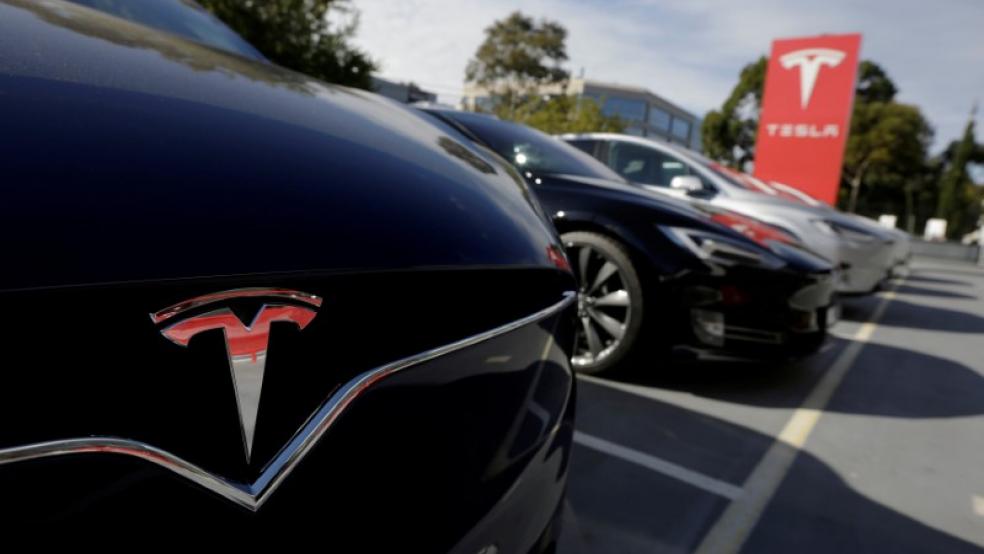Volvo became the first major auto company to announce the phase out of the internal-combustion engine from its lineup. The Chinese-owned Swedish car company announced on July 5 that every car it builds beginning in 2019 will have some sort of electric motor, “marking the historic end of cars that only have an internal combustion engine (ICE) and placing electrification at the core of its future business,” the company said in a press release.
“This is about the customer,” Håkan Samuelsson, president and CEO, said in a statement. “People increasingly demand electrified cars and we want to respond to our customers’ current and future needs. You can now pick and choose whichever electrified Volvo you wish.” Volvo’s entire lineup will either be fully electric or hybrid-electric by 2019.
Related: Here’s the Strategy Behind Volvo’s Big Move Into Electric Cars
Volvo laid down a marker, becoming the first company to announce the beginning of the end of gasoline and diesel-powered cars.
The timing of the decision is also notable, since it comes in the same week that Tesla announced that it would begin shipping its highly-anticipated Model 3 this week, with production slated to ramp up by the end of the year. The Model 3 is Tesla’s answer for a mass market car, a $35,000 fully-electric vehicle that is has been hyped as the car that will help drive the EV market forward.
But as the Volvo announcement notes, Tesla won’t be the only game in town. Volvo represents “the hard-reality case that Tesla will face intense competition by next decade from legacy [auto makers] expanding their electric options,” Barclays auto analyst Brian Johnson wrote in a research note to clients. “Tesla may have a lead in battery costs,” he said, but the long-established major carmakers have “scale advantages” that will allow them to catch up quickly, and perhaps even overtake Tesla.
Tesla could still be on track to lead the EV market in the U.S. According to Bloomberg New Energy Finance (BNEF), Tesla will sell more than 700,000 vehicles cumulatively through 2021, more than its competitors.
Related: Why Oil Demand Will Keep Rising, Even If We All Buy Teslas
But the bottom line is that with the major automakers shifting towards hybrids and electric vehicles, making major investments in new models, the competition will lead to improvements and further cost declines. While they battle it out, the top beneficiary will be consumers, who will find EVs increasingly affordable.
BNEF estimates in a new report that not only will EVs be more affordable than the competing internal-combustion engine over their full lifecycle, but falling battery costs will put them at cost parity or better with conventional vehicles by 2025-2029. The upfront cost is an enormous barrier to EVs, which are still significantly more expensive than traditional gasoline-fueled vehicles, even though they tend to be cheaper over their lifecycle.
But EV sales are set to rise quickly. Global EV sales will jump from 700,000 in 2016 to 3 million by 2021, which will be equivalent to 5 percent of the European light-duty car market and 4 percent in the U.S. and China.
However, that is just the beginning. By the second half of the 2020s, the sticker price for EVs could drop below those of conventional vehicles. That is when EVs really start to steal market share away from gasoline and diesel-powered vehicles in a big way. By 2040, BNEF estimates, EVs will capture the majority of car sales worldwide, a conclusion that has surprised even BNEF’s own analysts. “The central finding of the research is that the EV revolution is going to hit the car market even harder and faster than BNEF predicted a year ago,” the report concludes.
In its previous forecast, BNEF projected that EVs would make up 35 percent of all new light-duty vehicles sold by 2040. But because lithium-ion batteries are becoming cheaper at a faster rate than expected, BNEF now says that EVs will account for 54 percent of all new light-duty vehicles by that date. EVs will account for 67 percent of sales in Europe, 58 percent in the U.S., and 51 percent in China.
As the IEA noted earlier this week, there is a lot more to oil demand than passenger vehicles. Heavy-duty vehicles will add substantially to crude oil consumption in the decades to come without big changes to policy. That will be a much more difficult sector to electrify.
However, the implications of an EV revolution happening much quicker than expected are hard to overstate. BNEF says that EVs will erase 8 million barrels per day (mb/d) of crude oil demand by 2040, while also adding 5 percent to global electricity demand.
A reduction of 8 mb/d is a colossal threat to the oil industry.
This article originally appeared on OilPrice.com. Read more from OilPrice.com:
The Shale Gas Revolution Is A Media Myth




